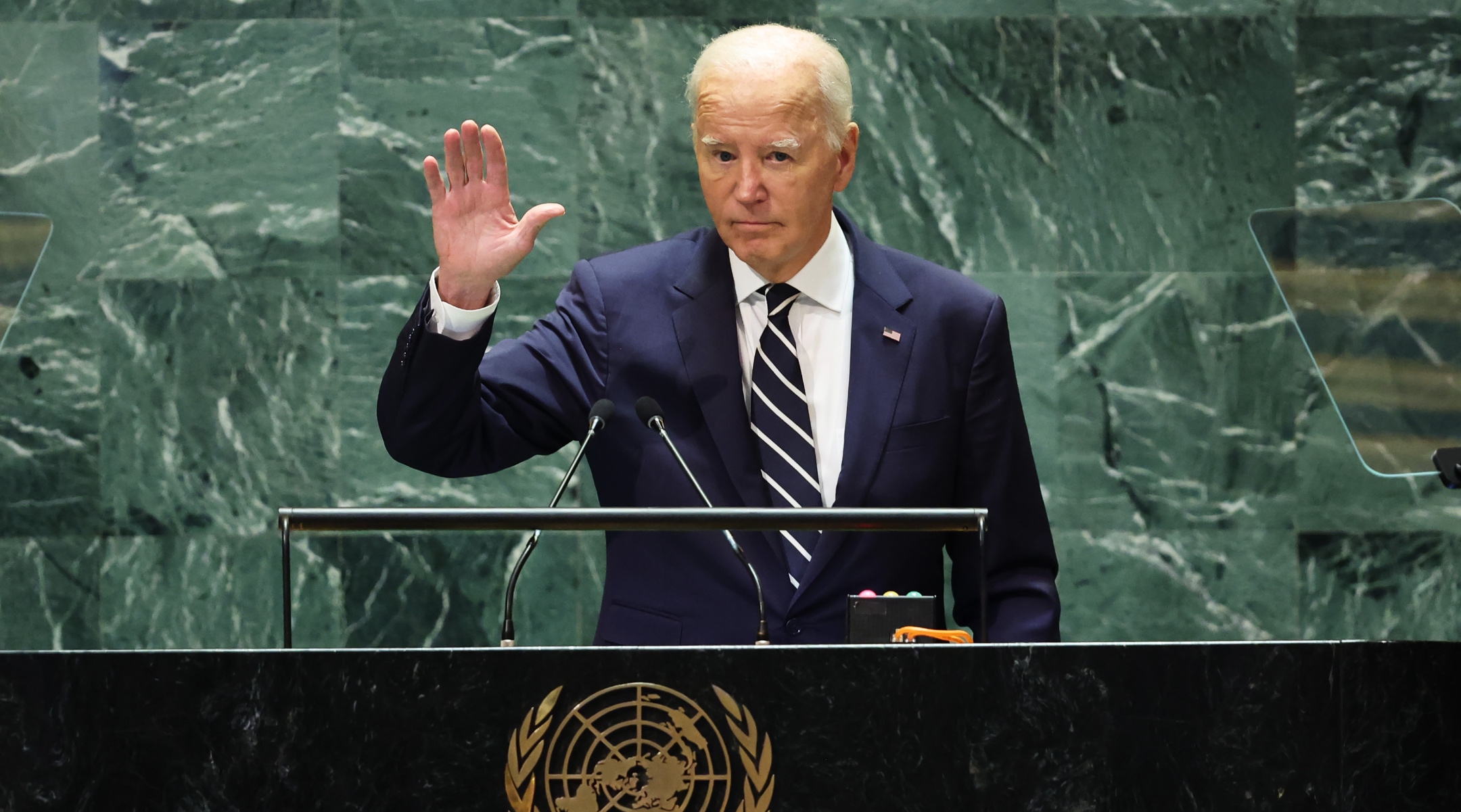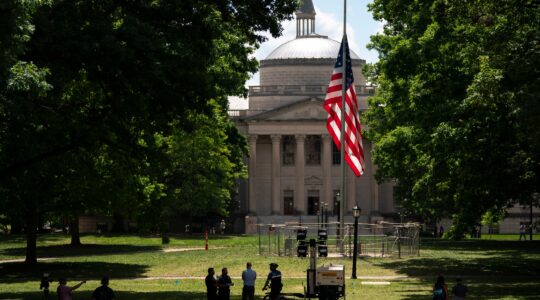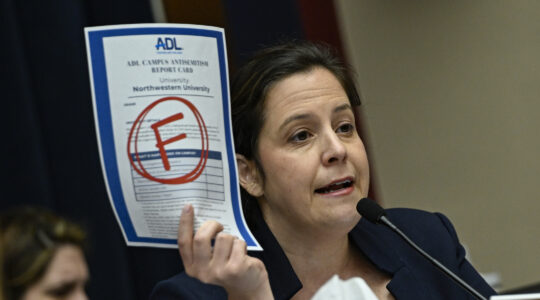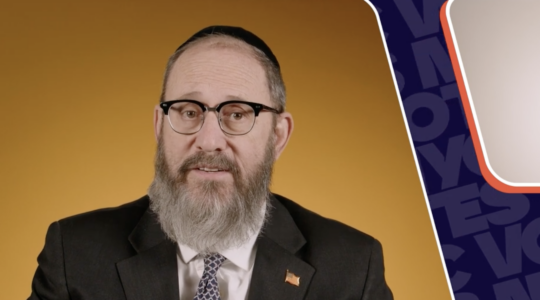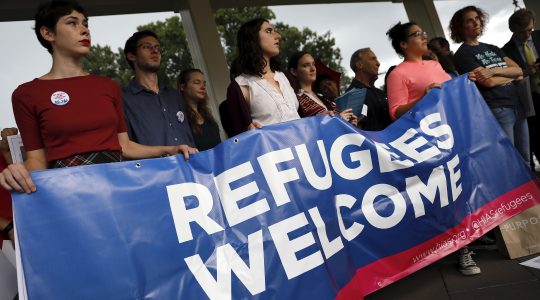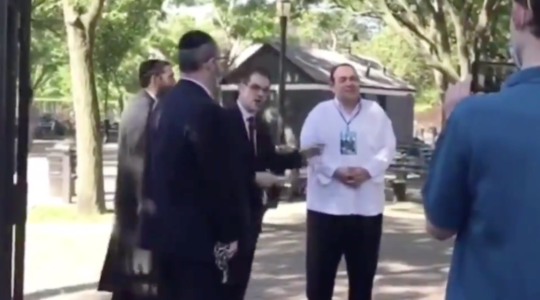Speaking to the United Nations General Assembly, President Joe Biden warned against “full-scale war” in Israel and Lebanon, sounding a warning as massive exchanges of fire escalated between Israel and Hezbollah.
In his final speech as president to the international body, Biden squarely blamed the Hezbollah for the hostilities on Israel’s northern border, which began when the Lebanese terror group started shelling Israel on Oct. 8, a day after Hamas launched its own war against Israel from the Gaza Strip. Since then, hundreds of people have been killed in the fighting, and tens of thousands have evacuated their homes.
“Since Oct. 7, we have also been determined to prevent a wider war that engulfs the entire region,” Biden said. “Hezbollah, unprovoked, joined the Oct. 7th attack launching rockets into Israel. Almost a year later, too many on each side of the Israeli-Lebanon border remain displaced.”
Biden’s speech comes as that wider war may be at the doorstep. Last week, thousands of pagers and other electronic devices belong to Hezbollah militants exploded simultaneously in two strikes, killing dozens and wounding thousands in an attack presumed to be the work of Israel. Hezbollah has since increased its missile attacks, shooting hundreds of rockets over the border, while Israel has mounted airstrikes in an operation it has dubbed “Northern Arrows” that has taken out a series of Hezbollah commanders and long-range weaponry, including strikes in Beirut.
Israel has said the return of civilians evacuated from the northern border is now a war aim. Prime Minister Benjamin Netanyahu has warned Lebanese civilians to evacuate the region until Israel completes its operation. Read Adm. Daniel Hagari, the Israeli military spokesman, said Tuesday that the goal was to hobble the weapons infrastructure Hezbollah has built up over decades in southern Lebanon.
“We will continue to show what Hezbollah has been doing over the past 20 years, in a vast project where they have turned thousands of civilian homes in southern Lebanon, and not only in southern Lebanon, into terror bases, turning southern Lebanon into a combat zone,” he said.
Biden said his administration was dedicated to preventing the expansion of the violence, a goal he has pursued since the beginning of the Israel-Hamas war. A broader regional war has threatened to erupt throughout the year since last Oct. 7: Iran is a sponsor of Hamas, Hezbollah and other groups that have attacked Israel, and for the first time ever, Iran and Israel have attacked each other directly.
Biden called for a negotiated end to the fighting in order to prevent a broader conflagration.
“Full-scale war is not in anyone’s interest,” he said. “Even as the situation has escalated, a diplomatic solution is still possible. In fact, it remains the only path to lasting security to allow the residents from both countries to return to their homes on the border safely. And that’s what we’re working tirelessly to achieve.”
Biden’s top Middle East official on the National Security Council, Jon Finer, spoke on the sidelines of the General Assembly to a conference organized by Axios, a political news outlet. He said reducing tensions in Lebanon was a top priority of Biden’s final months in office.
“We do not want it to spread,” Finer said. “We do not want it to escalate, and we are working to try to tamp it down.”
Biden is under pressure to show his administration has U.S. foreign interests under control with weeks to go before the presidential election, in which his vice president, Kamala Harris, is facing his predecessor Donald Trump. Trump has campaigned on the idea that the world was safer and calmer during his administration.
Biden’s speech to the United Nations struck an optimistic tone overall. The president, 81, leaned into his more than 50 years of experience in foreign policy, from his time in the U.S. Senate to his terms as vice president and now as president. He also emphasized the importance of alliances, an implicit contrast with Trump’s more isolationist outlook.
“Every age faces its challenges. I saw it as a young man. I see it today,” he said toward the end of the speech. “But we are stronger than we think. We’re stronger together than alone. And what the people call ‘impossible’ is just an illusion.”
JTA has documented Jewish history in real-time for over a century. Keep our journalism strong by joining us in supporting independent, award-winning reporting.
